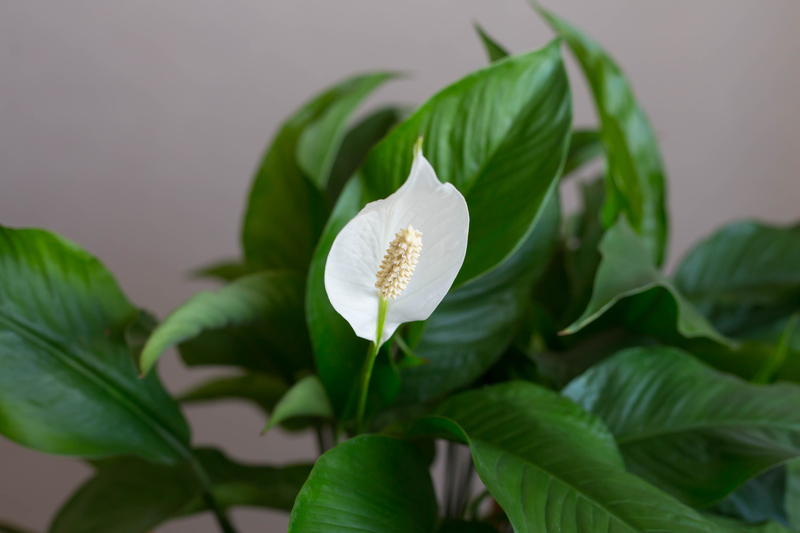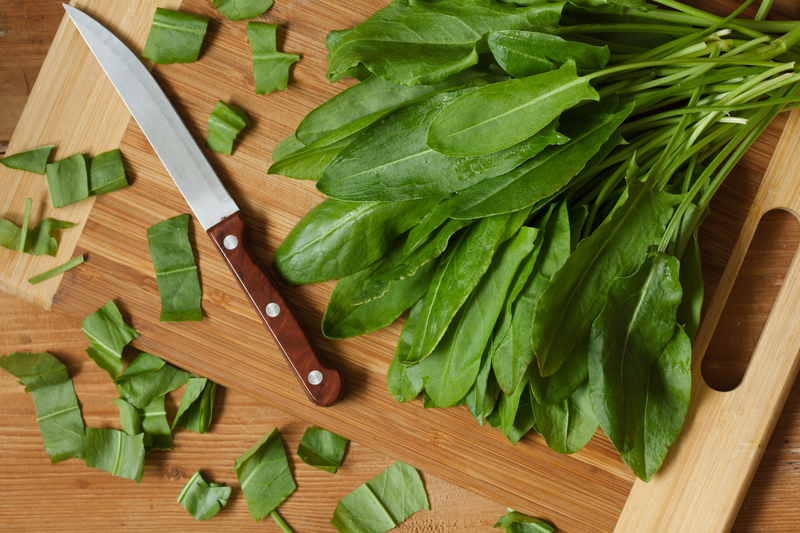Begin Your Gardening Journey with 9 Proven Tips for Success
Posted on 28/05/2025
Begin Your Gardening Journey with 9 Proven Tips for Success
Are you ready to begin your gardening journey? Whether you're a beginner tending your first patch of green or an aspiring green thumb aiming for lush and vibrant growth, starting a garden can be both rewarding and therapeutic. With the right foundation and expert advice, anyone can transform even the smallest space into a flourishing oasis. In this comprehensive guide, we'll share 9 proven gardening tips for success--from prepping your soil to choosing the best plants and keeping pests at bay. Let's set you up for gardening triumph!
Why Start a Garden? The Many Benefits of Gardening
Starting a garden is more than just planting seeds; it's a journey toward healthier living, mental tranquility, and even food security. Gardening can:
- Boost your mood and lower stress
- Provide fresh, organic produce for your table
- Encourage physical activity and outdoor time
- Improve air quality and support pollinators
- Foster a deeper connection with nature
Armed with these benefits, let's jump into the actionable steps you'll need to begin your gardening journey successfully.

1. Choose the Right Location for Your Garden
Location matters when you start your gardening journey. Before planting, observe your yard, balcony, or windowsill at different times of the day to note how much sunlight each area receives. Most vegetables and flowers need at least 6-8 hours of sunlight daily. If space is tight, a container garden or vertical planters can work wonders.
- Sunlight: Identify sunny spots for sun-loving varieties like tomatoes, peppers, and zinnias.
- Accessibility: Make sure your garden is easy to reach for daily care.
- Drainage: Avoid locations where water pools after rain. Good drainage is critical for healthy roots.
By selecting the optimal site, you lay the groundwork for vibrant, thriving plants.
2. Understand Your Soil and Improve Its Quality
Healthy soil is the foundation of every great garden. Before you plant, take time to discover your soil's texture, drainage, and structure. You can perform a simple jar test to estimate sand, silt, and clay proportions.
Tips for Preparing Superior Garden Soil:
- Test Your Soil: Get a soil testing kit to measure pH and nutrient levels, or send a sample to a local cooperative extension.
- Enrich with Compost: Add compost or well-rotted manure to boost organic matter and beneficial microorganisms.
- Loosen the Soil: Break up compacted soil with a garden fork or tiller to enhance root penetration.
- Mulch: Apply a layer of mulch after planting to retain moisture, suppress weeds, and regulate soil temperature.
_Healthy soil means healthy plants!_ Spending extra time at this stage ensures a fruitful gardening experience.
3. Start Small: Plan Before You Plant
When embarking on your beginner gardening journey, it's tempting to plant everything you love right away. However, starting small helps you focus your efforts, learn quickly, and avoid burnout.
Steps to Planning Your Starter Garden:
- Sketch Your Space: Use graph paper or online tools to map out where each plant will go.
- Consider Plant Heights: Arrange tall plants so they won't shade shorter ones.
- Group by Needs: Place plants with similar sunlight, watering, and soil requirements together.
- Allow Room to Grow: Remember that tiny seedlings need space to mature to full size.
A well-planned layout is an investment in your garden's future success.
4. Select the Best Plants for Your Region
To ensure gardening success for beginners, always choose plants adapted to your climate and soil. Native and locally adapted species are more resilient, require less maintenance, and are more likely to thrive. Visit a nearby nursery or consult your local extension service for expert advice on best plants for first-time gardeners.
Popular Starter Plants:
- Vegetables: Lettuce, radishes, green beans, and cherry tomatoes.
- Herbs: Basil, mint, chives, and parsley.
- Flowers: Marigolds, sunflowers, nasturtiums, and zinnias.
By picking easy-to-grow plants suited to your area, your first gardening season will be a rewarding one.
5. Master Watering Techniques for Healthy Growth
Water wisely! Over- or under-watering is a common mistake as new gardeners start their journey. Plants require consistent moisture, but not soggy feet.
Top Watering Tips:
- Water Early in the Morning: This minimizes evaporation and protects plants from fungal diseases.
- Deep, Infrequent Watering: Encourage deep root growth by watering less often, but thoroughly.
- Avoid Wetting Foliage: Direct water at the base of the plant to prevent disease.
- Use Drip Irrigation: For hands-off, efficient watering, set up a drip system or soaker hoses.
Monitor rainfall and always check the soil before watering again. Smart watering leads to lush, productive plants!
6. Feed Your Plants: Fertilization Basics
Just like us, plants need balanced nutrition to thrive. Providing the right fertilizers at the right time is key to successful gardening for beginners.
- Use Compost: Homemade compost provides a slow-release source of nutrients and improves soil structure.
- Try Organic Fertilizers: Fish emulsion, bone meal, and other natural sources are gentle yet effective.
- Follow Instructions: Over-fertilizing can burn plants and harm beneficial soil life.
- Feed at the Right Time: Seedlings and flowering plants have different needs--adjust feeding accordingly.
Remember, healthy, well-fed plants are more resistant to pests and diseases--giving you a garden filled with vigor and life!
7. Keep Weeds Under Control
Weeds compete with your desired plants for water, nutrients, and sunlight. Regular maintenance is essential to start your garden strong and keep it thriving.
Effective Weed Prevention Techniques:
- Mulch: Suppresses weed seeds and keeps soil moist.
- Hand Pulling: Catch weeds when they're young before they spread roots or seeds.
- Use Landscape Fabric: For larger plots, this can prevent most weeds from emerging.
Set aside a few minutes each week for weed control, and your garden will thank you for it!
8. Protect Your Garden from Pests and Diseases
Pests and diseases can quickly undermine hours of hard work. Early intervention and prevention are the best defenses for new gardeners.
- Attract Beneficial Insects: Ladybugs, lacewings, and bees are nature's pest controllers.
- Practice Crop Rotation: This reduces the buildup of pests and diseases in the soil.
- Inspect Regularly: Check under leaves and stems for signs of trouble.
- Use Natural Solutions: Neem oil, insecticidal soap, and homemade sprays can be both effective and eco-friendly.
- Encourage Plant Diversity: Mixed plantings often have fewer pest problems than monocultures.
Proactive care will keep your plants healthy and your garden vibrant all season long.

9. Celebrate Progress and Learn Continuously
Perhaps the most important advice for anyone beginning their gardening journey is to stay curious, patient, and persistent. Every plant, pest, and harvest is a chance to learn something new about the natural world and about yourself.
- Keep a Garden Journal: Record planting dates, weather patterns, successes, and challenges.
- Join a Gardening Community: Online forums, local clubs, and social media groups are rich sources of support and advice.
- Visit Public Gardens: Get inspiration from botanical gardens and community parks.
- Experiment: Try new seeds, techniques, and layouts every season.
Gardening is a never-ending journey of discovery. Celebrate your first sprouts, your first harvest, and even your mistakes--they all contribute to your growth as a gardener.
Begin Your Gardening Journey Today!
Armed with these 9 proven tips for gardening success, you're ready to turn your gardening dreams into reality. Remember, even the smallest steps can lead to a thriving, beautiful garden. Don't be afraid to get your hands dirty, experiment, and above all--enjoy the process.
Whether your goal is a vibrant veggie patch, a calming flower bed, or a few cheerful pots on your balcony, starting with these best gardening practices sets you up for long-lasting fulfillment and success. Now is the perfect time to begin your gardening journey!
Further Reading & Resources
- Gardening Know How - Beginner Tips
- National Extension Gardening Resources
- Royal Horticultural Society Advice
If you found this article helpful, share your thoughts or favorite gardening tip in the comments below. Happy gardening!
Latest Posts
Simplify Your Gardening with Cost-Effective Strategies
Beginner's blueprint to cultivating a sustainable herb garden
Child-Friendly Gardening Tips and Ideas
Cold-Weather Gardening: Prepare Your Plants for Winter's Chill

